Search
Remove Ads
Advertisement
Summary 
Loading AI-generated summary based on World History Encyclopedia articles ...
Search Results

Definition
The Thirty Tyrants
The Thirty Tyrants (οἱ τριάκοντα τύραννοι) is a term first used by Polycrates in a speech praising Thrasybulus (Arist. Rhet. 1401a) to describe the brief 8-month oligarchy which governed Athens after the Peloponnesian War – roughly late-summer...
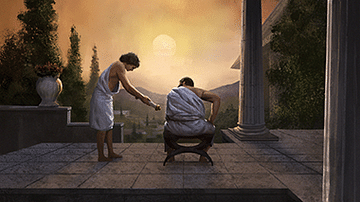
Article
Tyrants of Greece
Tyrannies existed across the Greek world from the city-states to the islands of Sicily and Samos. Most historians date the Great Age of Greek Tyranny from 750 to 500 BCE, ending with the ousting of Hippias; however, some authors extend the...
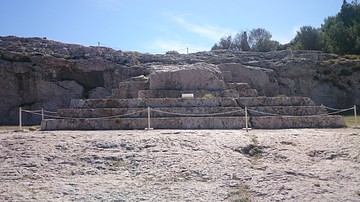
Definition
Critias
Critias (l. c. 460-403 BCE) was an Athenian politician, poet, and playwright, one of Socrates' followers, Plato's second cousin, a leading member of the Thirty Tyrants of Athens, and leader of the oligarchy they established. He is referenced...
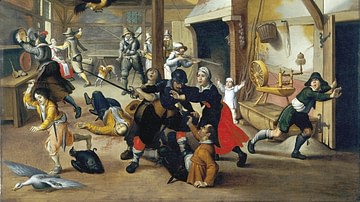
Definition
Thirty Years' War
The Thirty Years’ War (1618-1648) was the last major European conflict informed by religious divisions and one of the most devastating in European history resulting in a death toll of approximately 8 million. Beginning as a local conflict...
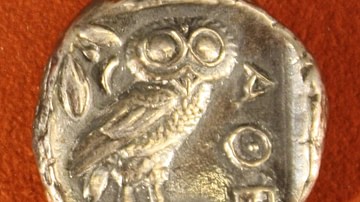
Article
The Delian League, Part 3: From the Thirty Years Peace to the Start of the Ten Years War (445/4–431/0 BCE)
This text is part of an article series on the Delian League. The third phase of the Delian League begins with the Thirty Years Peace between Athens and Sparta and ends with the start of the Ten Years War (445/4 – 431/0 BCE). The First Peloponnesian...
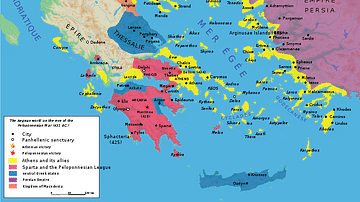
Article
The Delian League, Part 2: From Eurymedon to the Thirty Years Peace (465/4-445/4 BCE)
This text is part of an article series on the Delian League. The second phase of the Delian League's operations begins with the Hellenic victory over Mede forces at Eurymedon and ends with the Thirty Years Peace between Athens and Sparta...

Image
Soldiers Plundering a Farm During the Thirty Years' War
A 1620 painting, 'Soldiers Plundering a Farm During the Thirty Years' War' by Flemish painter Sebastian Vrancx (l. 1573-1647). (Deutsches Historisches Museum, Berlin)
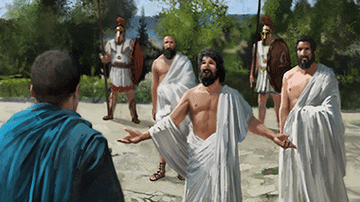
Definition
Ancient Greek Government
Ancient Greece witnessed a wide variety of government systems as people searched for the answers to such fundamental questions as who should rule and how? Should sovereignty lie in the rule of law, the constitution, officials, or the citizens...

Definition
Lysander
Lysander (d. 395 BCE) was a Spartan statesman and general who famously defeated the Athenian navy at the Battle of Aigospotamoi in 405 BCE, which finally won the Peloponnesian War. Lysander gained a reputation for a fiery personality, daring...

Definition
Athenian Democracy
Athenian democracy refers to the system of democratic government used in Athens, Greece from the 5th to 4th century BCE. Under this system, all male citizens - the dēmos - had equal political rights, freedom of speech, and the opportunity...